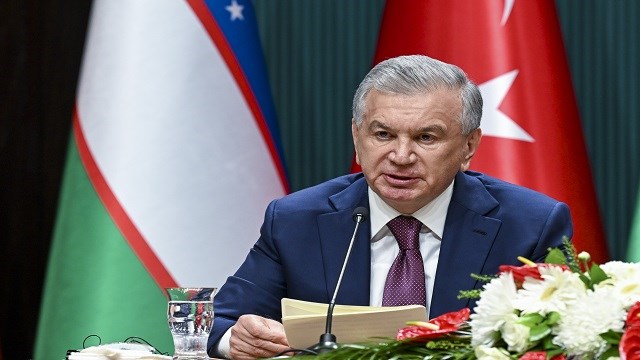
Uzbek President Mirziyoyev Discusses Forward-Looking Partnerships in Slovenia
Uzbek President Mirziyoyev Discusses Forward-Looking Partnerships in Slovenia
The official visit of President Shavkat Mirziyoyev of Uzbekistan to Slovenia has been described as the beginning of a new era in bilateral relations. During the meetings, both sides agreed to strengthen cooperation across a wide range of sectors including trade, culture, transportation, and technology.
Meeting with Slovenian President Nataša Pirc Musar in the capital Ljubljana, President Mirziyoyev emphasized the historic significance of the first presidential-level talks held after a 20-year hiatus. According to a statement by the Uzbek presidency, the two leaders expressed their mutual satisfaction in what was described as a warm and constructive atmosphere.
€500 Million Trade Target
As part of efforts to deepen economic ties, the two countries set a goal of increasing bilateral trade volume to €500 million. It was agreed that Uzbekistan would export textiles, fruits and vegetables, mineral fertilizers, copper, and industrial goods, while importing pharmaceuticals, high-tech products, and industrial equipment from Slovenia.
Potential Role of the Port of Koper
The talks also addressed the potential for Uzbekistan to use Slovenia’s Port of Koper as a key logistics hub for access to the European Union market. Investment projects by Slovenian companies in Uzbekistan were discussed, and a mutual understanding was reached on promoting reciprocal investments.
The two leaders also agreed to enhance cultural exchanges, including the organization of reciprocal cultural and film days. The upcoming meeting of the Intergovernmental Joint Economic Commission (JEC) to be held in Slovenia in July is expected to play a key role in advancing institutional cooperation.
As part of the visit, President Mirziyoyev also held talks with Slovenian Prime Minister Robert Golob. Following the meeting, a series of agreements were signed, covering cooperation in science, education, culture, urban development, transportation, and logistics. Both leaders expressed their commitment to transforming these interactions into a sustainable and multidimensional partnership.